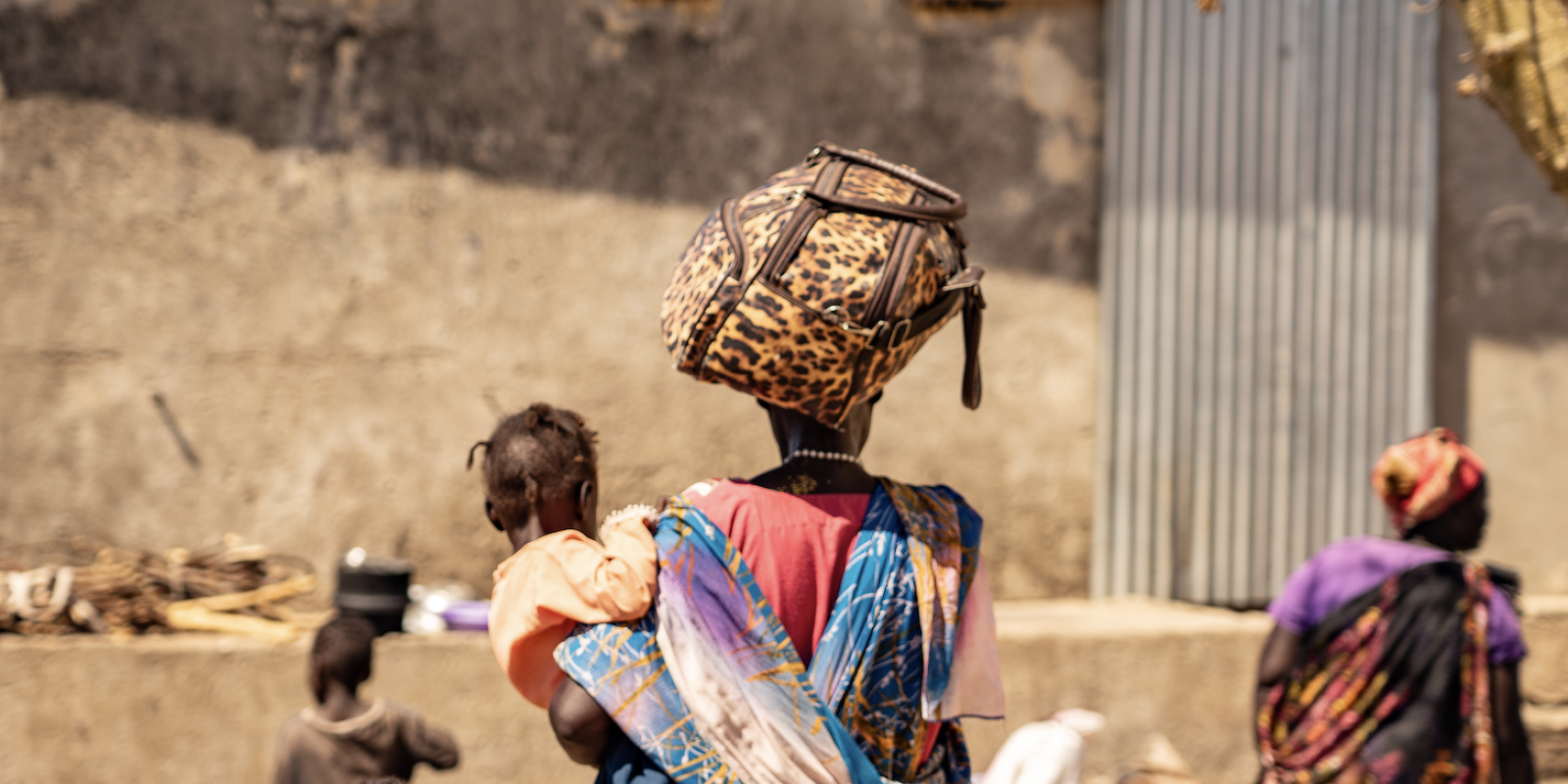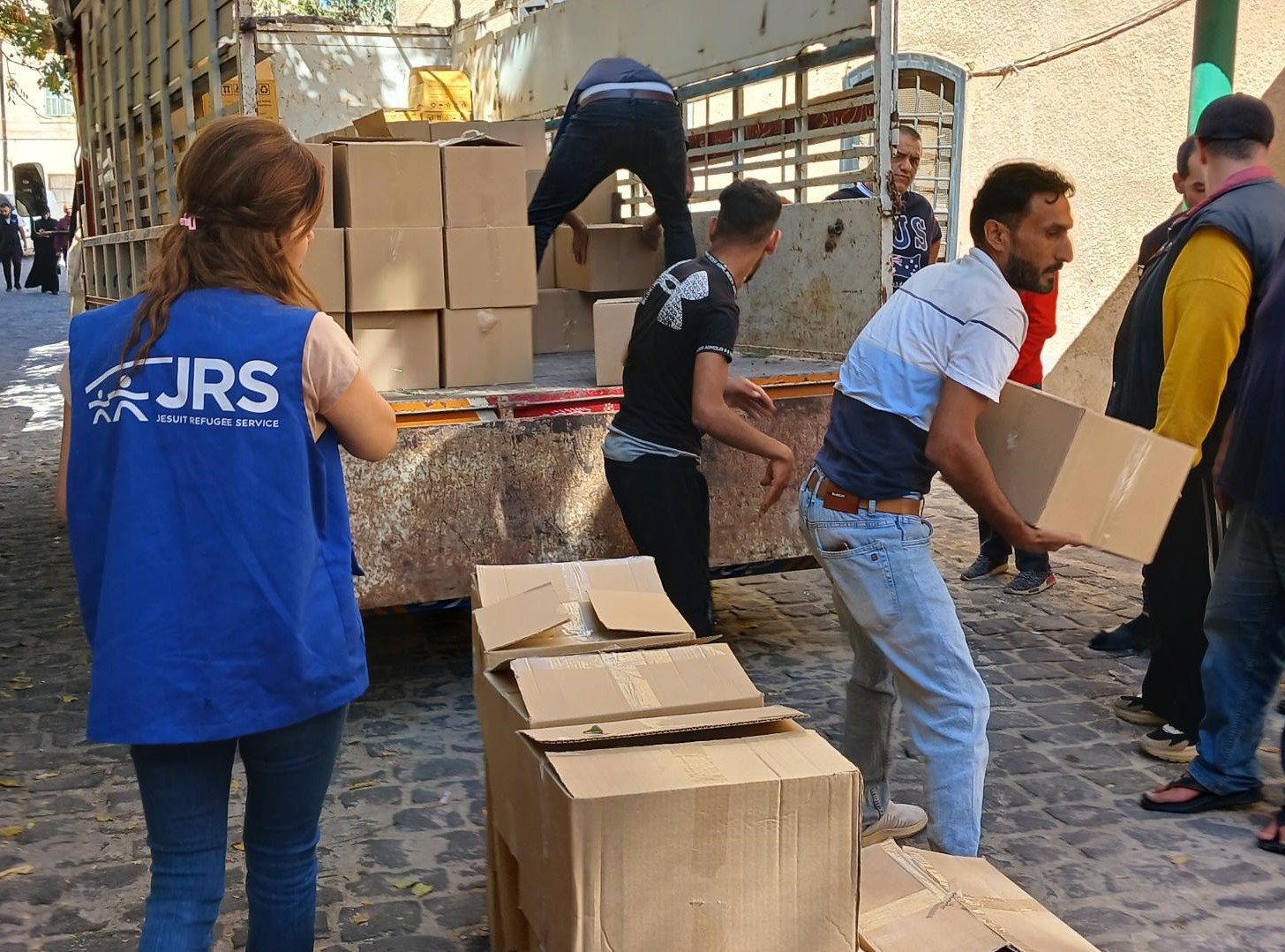“How I Want to Believe” A Religious Sister Reflects on Her Vocation
08 April 2025|Chloe Gunther
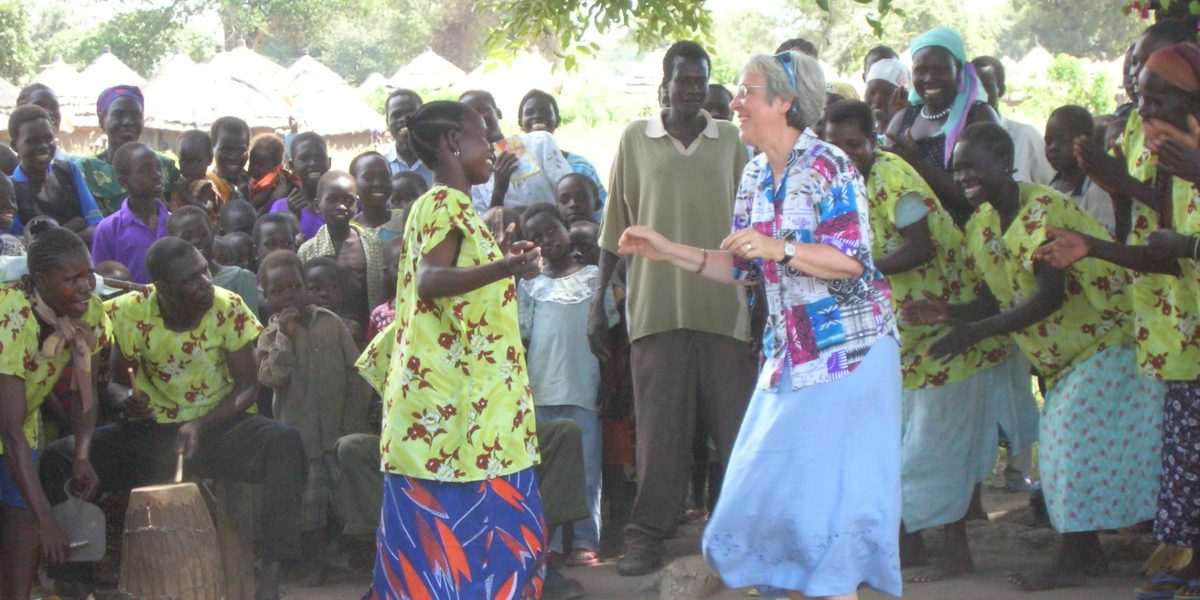
Sr. Roxanne Schares, a School Sister of Notre Dame (SSND), heard God’s call as a young girl. With religious sisters teaching her in school and two aunts who had followed the same call, she grew up the eldest of eight children on a small farm in northeastern Iowa, keenly aware of the opportunity to become a sister.
“I always felt at a young age a certain sense of God being very present in my life,” she recalled. Attracted to the SSND’s focus on education and being in community with marginalized people, she knew it was the right fit.
“Engaged in a variety of ministries, SSND are educators at heart, believing the world can be changed through the transformation of persons. We are teachers, administrators, lawyers, accountants, nurses, therapists, social workers, pastoral ministers, social justice advocates and much more,” their mission states.

Though early, Sr. Roxanne’s discernment was not without difficulty. When Sr. Roxanne was 15, her mother was diagnosed with multiple sclerosis, and her father passed away just a few years later. Both losses forced Sr. Roxanne to re-examine her vocation as she weighed familial responsibilities with her religious calling. But her mother and siblings supported Sr. Roxanne and encouraged her to follow her heart.
As a new sister, Sr. Roxanne taught in rural schools throughout the upper Midwest in North Dakota, Iowa, and Minnesota. In the summer, when she was not teaching or engaged in further studies, she accompanied migrant farm workers and impoverished communities in Appalachia.
When her congregation was beginning a ministry in Kenya, she mentioned to her superiors that should the opportunity or need arise, she would be open to ministering there.
“I remember feeling God’s overwhelming love in my life and a need to share that love. I also knew I needed to be more aware of the world around me,” she recalled about the time.
In January 1982, the opportunity came, and Sr. Roxanne moved across the globe to Kenya, a move that would lead her to a ministry among refugees, including critical education work with Jesuit Refugee Service in Africa.
She first served as a teacher in secondary schools, later in vocation and youth ministry and in leadership training of teachers, and then novice director for her congregation in Nairobi for seven years. While serving as novice director, SSND initiated their congregational justice, peace, and the integrity of creation network, for which Sr. Roxanne became the representative for Kenya and Africa.
It was during this time that thousands of refugees from the African Great Lakes region began to arrive in Nairobi and in the parish of the sisters. It was then that Sr. Roxanne said she felt a call to be with refugees. “My sense was they would be the ones to teach us about peace.”
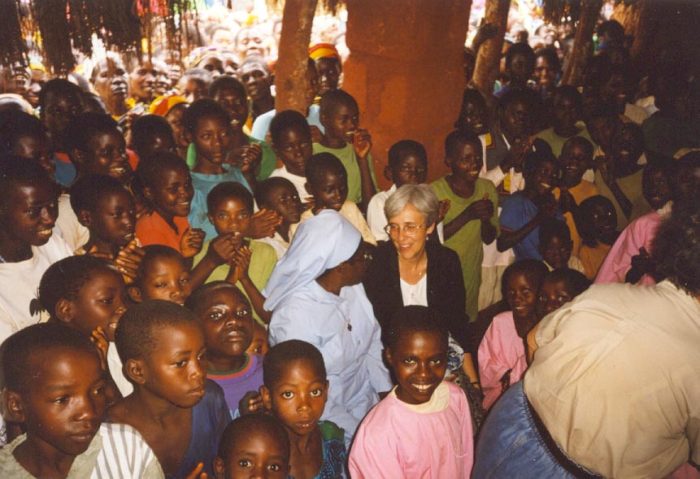
On completely her ministry as novice director, her community agreed that she could spend the next two years working with refugees. In September 1998, Sr. Roxanne moved into a small home in northwestern Tanzania near large refugee camps, situated along the borders with Rwanda and Burundi. After those two years, her community agreed that she could continue in the refugee ministry, being based in Nairobi.
While in Tanzania, Sr. Roxanne provided pastoral care primarily in Nduta Camp in the Kibondo District, working with catechists and facilitating peace-building workshops. Every other week, for several hours, men and women would gather. “I always made sure to conclude the sessions by noon so that the women could participate and still be home in time to prepare lunch,” Sr. Roxanne explained with a wry smile.
She wove the Gospel and Catholic Social Teaching into the sessions but also encouraged participants to bring parables and proverbs from their own culture.
“At the beginning of each session, they would tell me how they were sharing what they learned with others in their camp,” Sr. Roxanne remarked. The positive changes and growing harmony amongst people in the camp were noticeable. “I remember them saying, ‘Sister, who is doing this in our home country? They need this in Burundi.’”
She told the story of one Burundian man, a catechist she got to know well, as he often served as her interpreter for Kirundi.
At 17 years old, he and his family fled to Congo, then officially called the Republic of Zaire. There he met and married his wife, but war broke out and they were forced to flee again.
He had been a refugee for more than half his life. “I remember asking him what kept him going, what gave him hope,” Sr. Roxanne said.
His response: “Well, sister, for a Christian, there’s always hope. God knows when I will be able to go home again,” he continued sincerely, no sarcasm or hyperbole in his voice. “God knows.”
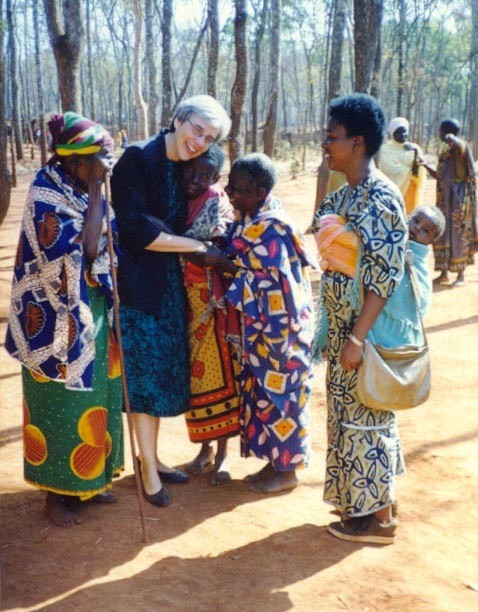
A few weeks later, he returned excitedly to the camp with good news. His wife had just given birth to their ninth child, a baby girl. They named her Victorina Christina Nyibigizi. Her Burundian name meaning “God knows.”
“I learned then that I don’t bring hope to people,” Sr. Roxanne said. “But when we are in solidarity with one another, God’s gifts of grace and hope are revealed to us.”
Sr. Roxanne moved back to Nairobi 2000, where with JRS, she engaged in pastoral and social work with urban refugees and asylum seekers while still responding to requests related to projects from other countries throughout the Eastern Africa region. From 2004 to 2007, she served as the JRS African Education Resource Coordinator, which took her to JRS educational projects throughout the continent.
In mid-2007, Sr. Roxanne moved to Rome, bringing the peacebuilding skills she’s refined throughout her time in Africa, serving as her congregation’s coordinator for Justice, Peace and Integrity of Creation.
Today, Sr. Roxanne serves as the Associate Executive Secretary for the International Union of Superiors General (UISG) in Rome where she supports leaders of congregations worldwide. She previously served as general superior of her congregation from 2018 to 2024 and as a UISG executive board member.
With more than 1,900 members of UISG on six continents, Sr. Roxanne stays busy. She is focused on finding more outlets for collaboration between religious congregations and organizations as well as building capacity and empowerment amongst sisters.
She hopes the global Catholic and secular community will gain a better understanding of religious sisters’ work at the margins, bringing the voices of the poor to the forefront. She reflected on how JRS has helped sharpen her work.
“JRS showed me how if you have one foot with the people, you can lift up the voice of those at the margins and together be advocates for systemic change for greater justice and peace,” she said.
As the number of sisters worldwide decreases, she thinks about the future of congregations and the work they may be called to do in the future.
“I hope, as religious, we can also learn how to be that prophetic voice for our Church and world where we need to be. And bring the voices of the people on the margins to where they need to be.”
As we concluded the conversation, Sr. Roxanne shared a poem, “How I Want to Believe,” which she wrote in the early 2000’s, when a few governments were claiming it was safe for refugees to return to their home countries. In part, it reads:
There is peace, they say.
How I want to believe!
But after all these years,
What kind of peace?
Is it possible there is no more hatred?
And oppression has ended? …
Our land will be returned, they say.
How I want to believe!
But after all these years,
What will be there?
Will I find my house?
My neighbours?
“I realized that working with JRS [became] a part of me,” she said. “Over the years, my heart has grown to include more and more people and their concerns and realities.”
She encourages all of us to examine how we might be with and accompany displaced people: “How can we be compassionate? How can we be people of solidarity? Be with those who struggle and not see them as different or other or our enemy, but rather know them as our sisters and brothers?”

